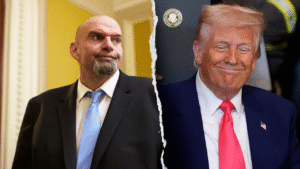Abortion providers and Democrat-led states are filing lawsuits over the Trump administration’s decision to defund Planned Parenthood. This legal battle challenges both Congress and the president’s will.
Planned Parenthood and several blue states have taken legal action against the provision in the One Big Beautiful Bill Act, which removes Medicaid funding from specific abortion providers for a year. While this bill was passed by Congress and signed by the president in July, a federal judge in Massachusetts has temporarily halted the Trump Health and Human Services Department from enforcing it.
Derek Muller, a professor at Notre Dame Law School, explained that this lawsuit is unique because it challenges two branches of the government simultaneously. This sets it apart from other lawsuits against the Trump administration.
Planned Parenthood brought the lawsuit, claiming that the provision is unconstitutional as it would deprive the organization of millions of dollars in Medicaid reimbursements. This loss could lead to a significant decrease in patients and the closure of many facilities.
Katie Daniel, counsel at SBA Pro-Life America, criticized Planned Parenthood’s argument, stating that it undermines Congress’s authority to allocate taxpayer dollars. She highlighted that Planned Parenthood heavily relies on taxpayer funding to sustain its operations.
Planned Parenthood’s attorneys argued that defunding would have severe public health consequences, including a lack of cancer screenings and contraception access. However, Daniel mentioned that there are several other clinics in the Medicaid marketplace that outnumber Planned Parenthood nationally.
The lawsuit has attracted additional plaintiffs, including 21 states with Democratic attorneys general, the District of Columbia, and Governor Josh Shapiro of Pennsylvania. Maine Family Planning, which operates health facilities in Maine, also filed a lawsuit against the legislation.
Despite the legal challenges, Daniel anticipates that higher courts will rule in favor of the Trump administration, given the one-year limit on funding cuts. If the administration prevails, it may seek to recover the lost Medicaid funds during the injunction. However, this process is expected to be challenging and time-consuming.
Planned Parenthood also raised the issue of the bill’s constitutionality under the bill of attainder clause, which prohibits legislation that singles out and punishes individuals or entities without due process. While this argument is being debated, legal experts like Muller believe it may not hold up in higher courts. In a shocking turn of events, a local bakery in downtown Chicago was robbed late last night. The thieves made off with an estimated $10,000 in cash and merchandise. The owner of the bakery, Sarah Johnson, was devastated by the news. “I put my heart and soul into this business, and to have it taken away like this is just heartbreaking,” Johnson said in a statement.
The Chicago Police Department is currently investigating the robbery and is asking anyone with information to come forward. They are reviewing security footage from nearby businesses to try and identify the suspects. The community has rallied around Johnson, with many offering their support and assistance in any way they can.
This incident has left many in the neighborhood on edge, as they worry about the safety of their own businesses. Local business owners are now considering increasing security measures to prevent future robberies. Despite the setback, Johnson remains hopeful and determined to rebuild her bakery. “I won’t let this stop me from doing what I love,” she said.





